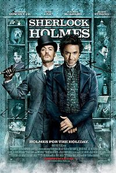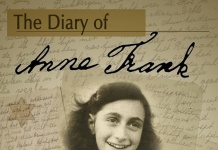 The New York Times has an interesting story on the tangled copyright history of the Sherlock Holmes stories. It boils down to the fact that the rights have passed through so many sets of heirs, with one widow and one divorcee involved, that there is some disagreement as to who actually owns them.
The New York Times has an interesting story on the tangled copyright history of the Sherlock Holmes stories. It boils down to the fact that the rights have passed through so many sets of heirs, with one widow and one divorcee involved, that there is some disagreement as to who actually owns them.
For a short time, Holmes was out of copyright—then a Conan Doyle heir recovered the rights under the Copyright Act of 1976. According to a literary agent for the Conan Doyle estate, Holmes remains under copyright protection until 2023.
Slightly ominous is this paragraph:
The estate remains mum about its plans for the time Sherlock Holmes falls into the American public domain, or whether it might try to extend the copyrights. But Mr. Lellenberg said the group pays careful attention to the management of other venerable pop-cultural properties: the Walt Disney Company, which is preparing to celebrate the 82nd birthday of Mickey Mouse, has “always been at the leading edge” of intellectual property law, he said. And he noted that the estate of Edgar Rice Burroughs, the adventure writer who created Tarzan and John Carter of Mars (each 98), has “generally been the quickest off the mark to ensure and enhance protection for its works and characters.”
I had thought that if the Sonny Bono act had not extended the copyrights, Holmes should have passed into the public domain by now. The only Holmes book still under copyright in the USA as far as I know is the very last short story collection, The Casebook of Sherlock Holmes, which was published after the Bono-imposed 1923 cut-off date. (All earlier Holmes works can be downloaded as e-books here, among other places.)
If that is the case, shouldn’t people be able to create derivative works based on any Holmes works that came before with impunity, as long as they don’t use anything from the last book? If not, then why is Disney so worried about losing one single Mickey Mouse animation to the public domain?

































Most of the Holmes canon is available at Gutenberg.
This implies that the PG managers don’t think the copyright is still alive.
And perhaps that the claimants haven’t demanded a take-down.
TeleRead has an article titled Sherlock Holmes in a leotard? Ask the trademark owner! written by Branko Collin in 2007. The article discusses the use of trademarks in addition to copyrights to preserve the intellectual property rights to literary creations. The Financial Times covers this issue in a linked article titled Posthumous publishers who refuse to live and let die. Here is an excerpt that mentions Ian Fleming’s James Bond:
I thought there was some kind of law or court decision that said trademarks couldn’t be used to prevent people from making use of public domain works. If they can, I’m not sure why Disney is so worried about Mickey lapsing.
Arthur Conan Doyle died in 1930 at the age of 71. He has been dead for 78 years since. If Sherlock Holmes suddenly is reborn into private domain — shades of Reichenbach Falls! — then perhaps we can consult Arthur directly through his favourite medium the Ouija Board to see if he agrees that his current “heirs” deserve a tuppence of royalties.
If upheld, what can one possibly say except that this is a crime befitting Moriarty! A crime, indeed, against Literary Humanity.
“If that is the case, shouldn’t people be able to create derivative works based on any Holmes works that came before with impunity, as long as they don’t use anything from the last book?”
I think the answer is “Perhaps, but it’s less hassle to pay the copyright holders at the start than taking a risk of going ahead and seeing the project being impounded by the courts while the IP lawyers slug it out”. If I understand correctly the issue is that when a character is established by a corpus of works, some of which are public domain and some of which are copyrighted, is it possible to create a derivative based solely on the PD works and successfully defend the derivative in court? I’m not aware of this hair being split yet by the courts and those who would be in a position to test it have other priorities.
A lot of corporations take a cautious approach to IP. It’s possible Disney could protect Mickey even if the first cartoon goes PD, but the protection is stronger with it CRed.
Trademarking is usually done by movie or media companies, not publishers or authors, because it’s so expensive. Even JK Rowling who could afford it didn’t trademark the various names and terms in the Harry Potter series, but the company who bought the movie rights did. I think that was mainly to protect the merchandizing, not the movies or books.
I’ve never come across an explanation of copyright for a series where parts of it go into public domain, and I’ve done a lot of reading on copyright over the years.
It would be interesting to know whether the estate of Arthur Conan Doyle has authorized the three current media iterations on Sherlock Holmes including the new fall series, ELEMENTARY.
For those interested…the best (and most carefully curated) complete Sherlock Holmes canon ebook is available for free at MobileRead. Edited by someone who actually cares about getting the content right and well-organized, rather than someone throwing a piece of poorly formatted garbage onto Amazon and trying to make a buck off it.
When I see some of the crap eBook editions of authors that have died in the past few decades, by “literary executors” seeking only to cash in, it makes me very, very sad.
@John Doe, I agree the eBook editions that Harry puts out are very well done. He spends tons of time on them, often comparing the files to the original print versions to make sure everything is right. His Dicken’s stuff is great.